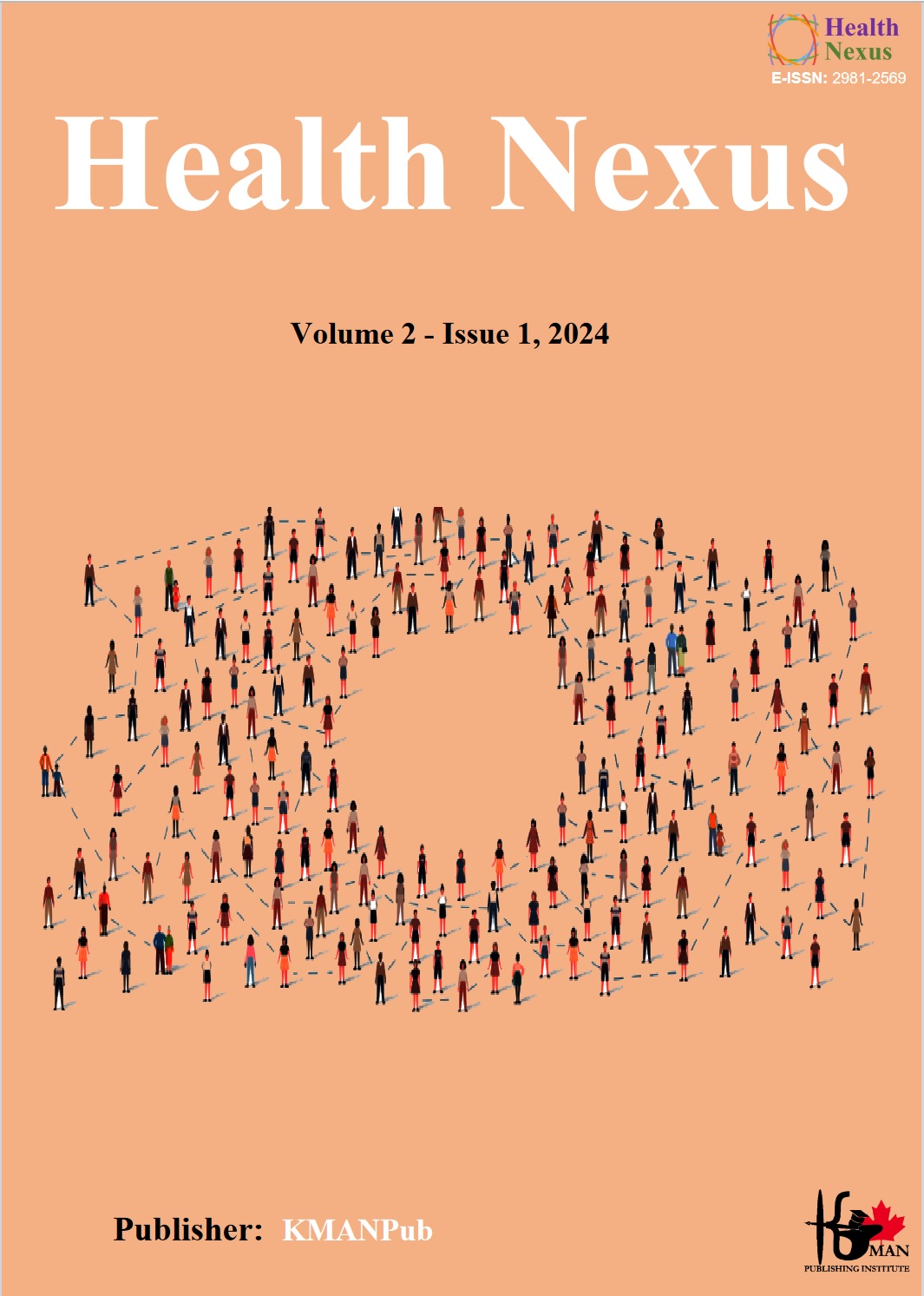Comparison of the Effectiveness of the Successful Intelligence Training Package Focused on Risky Behaviors with the Executive Functioning Improvement Package on the Inclination to Risky Behavior and Family Affinity among Female Middle School Students Engaged in Risky Behaviors
Keywords:
Successful Intelligence, Executive Functioning, Inclination to Risky Behavior, Family AffinityAbstract
The present study aimed to compare the effectiveness of the Successful Intelligence Training Package focused on risky behaviors (Baramkeh et al., 2024) with the Executive Functioning Improvement Package (Karimi et al., 2023) on the inclination to risky behavior and family affinity among female middle school students engaged in risky behaviors. The research method was a quasi-experimental design with pre-test, post-test, and follow-up phases, involving two experimental groups and one control group. The population consisted of all middle school students engaged in risky behaviors, from which 60 students were purposively selected based on inclusion and exclusion criteria and randomly assigned to two experimental groups and one control group. All subjects were assessed at three stages of the research using research instruments. These tools included the Inclination to Risky Behavior scale (Paki et al., 2020) and Family Affinity (Yousefi, 2022, cited from Karimi et al., 2023). While the control group was on a waiting list, the experimental groups received eight 120-minute sessions of Executive Functioning training and the Successful Intelligence Training Package focused on risky behaviors. Data were analyzed using descriptive statistics (mean and standard deviation) and analysis of variance with repeated measures. The results indicated that both methods were effective on the dependent variables, and except for self-management, there was no significant difference in effectiveness between the two methods, with executive functioning having more effectiveness on the mentioned variable. Based on the findings, it can be said that both training packages are suitable for improving the dependent variables of this research.
Downloads
References
1. Wang H, Wang Z, Li X, Liu J. Characteristics and risk
factors of Health-Related Risky behaviors in adolescents with
Depression. Child and Adolescent Psychiatry and Mental Health.
2024;18(1):34. [PMID: 38500185] [PMCID: PMC10949750]
[DOI]
2. Oh W-O, Heo Y-J. Exploring the Link Between
Smartphone Overdependence, Depression, and Suicidal Behaviors
Through the Mediating Effect of Lifestyle Risk Behaviors Among
South Korean Adolescents: A Cross-sectional Study Using
National Big Data. Journal of Pediatric Health Care. 2024. [PMID:
38244009] [DOI]
3. Strijbos D, Slors M. What Kind of" Management" Is
Self-Management? A Two-Dimensional Approach to SelfManagement in Mental Health Care. Philosophy, Psychiatry, &
Psychology. 2020;27(4):355-70. [DOI]
4. Taquette SR, Monteiro DLM. Causes and consequences
of adolescent dating violence: a systematic review. Journal of
injury and violence research. 2019;11(2):137. [DOI]
5. Joghataei A, Mafakheri A, bakhshipoor a. Evaluation of
the effectiveness of mindfulness training on high-risk and
procrastination behaviors and fear of success among students.
Journal of Applied Family Therapy. 2023;4(1):64-81. [DOI]
6. Karimi A, Yousefi Z, Turkan H. Compilation of the
Psychological Enrichment Training Package for Soldiers and
Comparing its Effectiveness with Psychotherapy Based on
Improving Executive Function on Improving Emotional-Social
Skills and Family Friendship of SoldiersFoldiers: A Mixed Method
Study. Journal of Military Caring Sciences. 2023;9(4):344-56.
7. Underwood JM. Overview and methods for the youth
risk behavior surveillance system—United States, 2019. MMWR
supplements. 2020;69. [PMID: 32817611] [PMCID:
PMC7440204] [DOI]
8. Diamond A. Chapter 19 - Executive functions. In:
Gallagher A, Bulteau C, Cohen D, Michaud JL, editors. Handbook
of Clinical Neurology. 173: Elsevier; 2020. p. 225-40.
9. Sternberg RJ, Karami S. An 8P theoretical framework for
understanding creativity and theories of creativity. The Journal of
Creative Behavior. 2022;56(1):55-78. [DOI]
10. Gheisari Z, Sahebdel H, Ebrahimpour M. Effectiveness
of Motivational Psychotherapy on High-Risk Behaviors (Violence
and Sexual Behavior) of Students. Pajouhan Scientific Journal.
2021;19(3):27-33. [DOI]
11. Mohammad Beigi Selahshor H. The effectiveness of
integrated transdiagnostic treatment on high-risk behaviors and
feelings of self-worth in adolescents. Journal of Psychological
Dynamics in Mood Disorders (PDMD). 2022;1(3):1-10.
12. Momeni Mazdeh MM, Gholamreza ; Aghaei, Asghar.
The Effectiveness of Logo Therapy on Self Criticism of Female
Students Exposed to High-Risk Behaviors. Medical Journal of
Mashhad University of Medical Sciences. 2023;66(2):292-305.
13. Enkema MC, Bowen S. Mindfulness practice moderates
the relationship between craving and substance use in a clinical
sample. Drug and Alcohol Dependence. 2017;179:78-88. [PMID:
28734167] [DOI]
14. Beck E, Bo S, Jørgensen MS, Gondan M, Poulsen S,
Storebø OJ, et al. Mentalization-based treatment in groups for
adolescents with borderline personality disorder: a randomized
controlled trial. Journal of Child Psychology and Psychiatry.
2020;61(5):594-604. [PMID: 31702058] [DOI]
15. Karbasizadeh Esfahani FZ, Bahrami F. The
Effectiveness of Emotional Orientation Approach on Self-Control
and Mother-Daughter Conflicts in High School Girls in Isfahan
City. Journal of Research in Behavioural Sciences.
2020;18(1):122-31. [DOI]
16. Sadeghidehkordi A, Yousefi Z, Torkan H. Determining
the effectiveness of Seligman's parenting style education package
on mother-daughter conflicts. Journal of Applied Family Therapy.
2023;4(1):638-48. [DOI]
17. Khanabadi M, Choobdari A. The effectiveness of
Adlerian parenting training (STEP) on decreasing of the conflicts
in the relationship of mother/child in girl adolescents. Psychology
of Exceptional Individuals. 2021;11(42):111-32.
Downloads
Additional Files
Published
License
Copyright (c) 2024 Zahra Baramake (Author); Mahboubeh Sadat Fadavi (Corresponding Author); Zahra Yousefi (Author)

This work is licensed under a Creative Commons Attribution-NonCommercial 4.0 International License.
















